
Chellah: A Journey Through Time in Rabat
Chellah, a serene and historic site located on the outskirts of Rabat, is a remarkable destination that offers a unique blend of Roman and Islamic history. This ancient necropolis is surrounded by lush gardens and towering walls, making it a perfect spot for both history enthusiasts and nature lovers alike. Upon entering Chellah, visitors are greeted by the remnants of Roman ruins, including a forum, a triumphal arch, and various other structures that date back to the Phoenician and Roman periods. As you wander through these ancient relics, you can almost hear the echoes of the past, giving you a sense of what life might have been like in this bustling settlement centuries ago. Further into the site, you will encounter the more recent Islamic influences, with structures such as a mosque, minaret, and royal tombs from the Merenid dynasty. The fusion of Roman and Islamic architecture is a testament to Morocco's rich and diverse cultural heritage. The gardens surrounding the ruins are filled with fragrant flowers, fruit trees, and the sounds of storks nesting, providing a peaceful and picturesque setting for reflection. Chellah is not only a historical treasure but also a sanctuary for wildlife. The site's natural beauty and tranquility make it an ideal escape from the hustle and bustle of Rabat's city center. Whether you're a history buff, a nature lover, or simply looking for a serene place to relax, Chellah offers a unique and unforgettable experience.
Local tips in Chellah
- Visit early in the morning to avoid crowds and enjoy the peaceful atmosphere.
- Wear comfortable walking shoes as the terrain can be uneven.
- Bring a camera to capture the stunning ruins and beautiful gardens.
- Don't miss the storks nesting on top of the ruins; they're a unique sight.
- Carry water and snacks, as there are limited facilities within the site.
Chellah: A Journey Through Time in Rabat
Chellah, a serene and historic site located on the outskirts of Rabat, is a remarkable destination that offers a unique blend of Roman and Islamic history. This ancient necropolis is surrounded by lush gardens and towering walls, making it a perfect spot for both history enthusiasts and nature lovers alike. Upon entering Chellah, visitors are greeted by the remnants of Roman ruins, including a forum, a triumphal arch, and various other structures that date back to the Phoenician and Roman periods. As you wander through these ancient relics, you can almost hear the echoes of the past, giving you a sense of what life might have been like in this bustling settlement centuries ago. Further into the site, you will encounter the more recent Islamic influences, with structures such as a mosque, minaret, and royal tombs from the Merenid dynasty. The fusion of Roman and Islamic architecture is a testament to Morocco's rich and diverse cultural heritage. The gardens surrounding the ruins are filled with fragrant flowers, fruit trees, and the sounds of storks nesting, providing a peaceful and picturesque setting for reflection. Chellah is not only a historical treasure but also a sanctuary for wildlife. The site's natural beauty and tranquility make it an ideal escape from the hustle and bustle of Rabat's city center. Whether you're a history buff, a nature lover, or simply looking for a serene place to relax, Chellah offers a unique and unforgettable experience.
Iconic landmarks you can’t miss
Mausoleum of Mohammed V
Explore the Mausoleum of Mohammed V, a stunning example of Moroccan architecture and a tribute to the nation's beloved kings in the heart of Rabat.
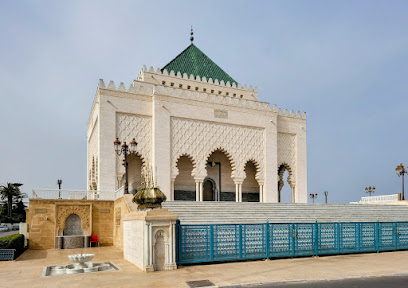
Chellah
Discover Chellah, the enchanting blend of ancient Roman ruins and serene gardens in the heart of Rabat, Morocco, a must-visit historical landmark.

Royal Palace
Experience the royal elegance of Rabat at the stunning Royal Palace, a key landmark showcasing Morocco's rich heritage and architectural beauty.
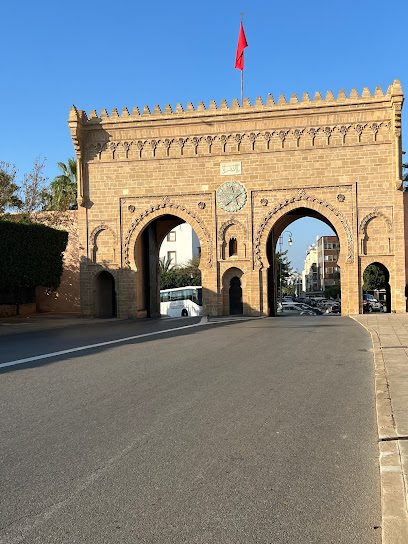
Bab Rouah Gate
Discover the historical splendor of Bab Rouah Gate, a stunning landmark in Rabat offering a glimpse into Morocco's rich heritage and vibrant culture.
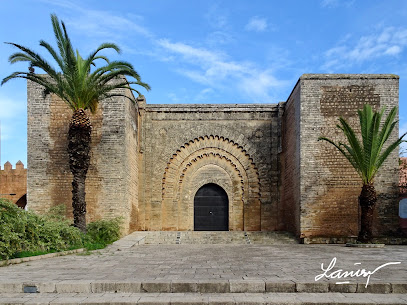
Bab Mellah
Explore Bab Mellah, Rabat's historic Jewish quarter, where rich heritage and vibrant culture come together in a captivating travel experience.
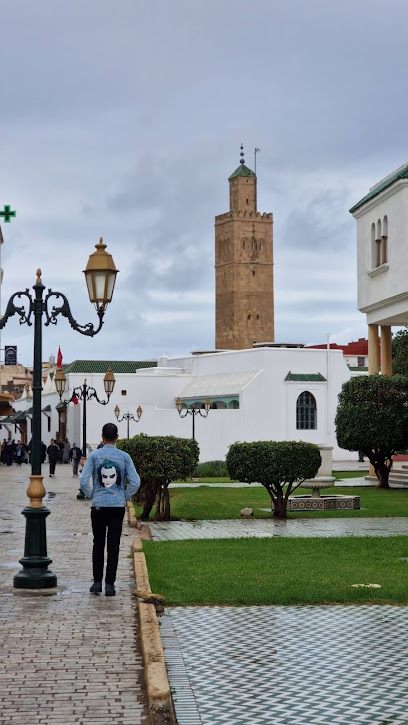
Bab Chellah
Explore Bab Chellah, a historical monument in Rabat, Morocco, where ancient ruins and lush gardens reveal a tapestry of cultural heritage.
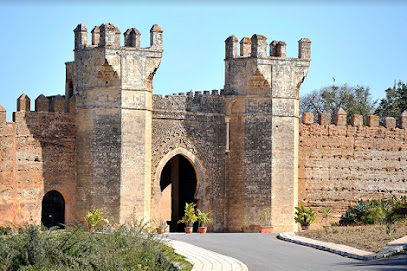
Viewpoint Bouregreg
Experience the breathtaking views and rich history at Viewpoint Bouregreg, a must-see landmark in Chefchaouen, Morocco.
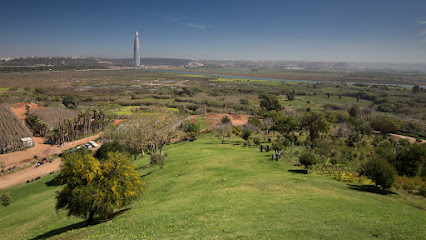
Le Mausolé D'Abu Al-Hassan
Explore Le Mausolée D'Abu Al-Hassan in Rabat: a captivating historical landmark reflecting Morocco's royal heritage and architectural beauty.
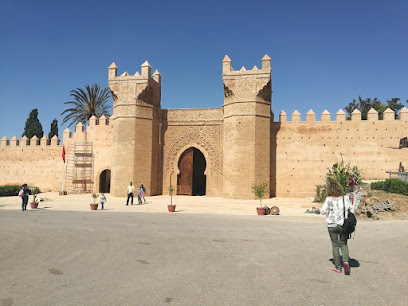
Hassan tour spacious square monument
Explore the Hassan Tour Square in Rabat, where history meets culture in a stunning architectural landscape.
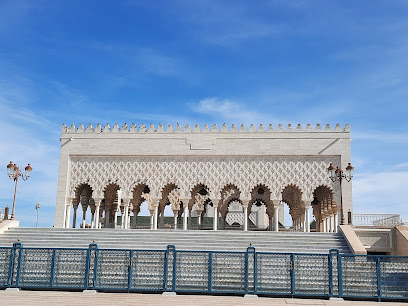
Place Al Andalous
Explore the vibrant culture and stunning architecture at Place Al Andalous, a must-visit tourist attraction in Rabat, Morocco.
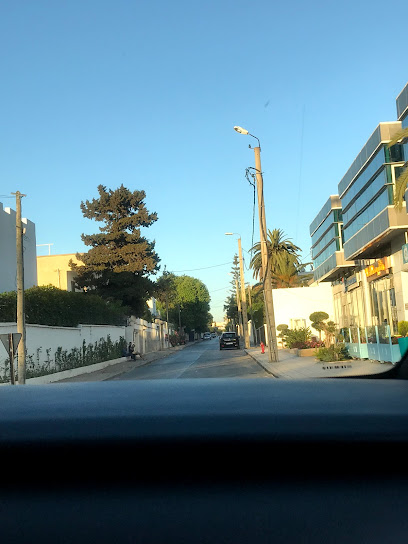
Unmissable attractions to see
National Zoo Rabat Morocco
Explore the National Zoo Rabat, a thriving oasis of wildlife showcasing diverse species in beautifully crafted habitats, perfect for family adventures.
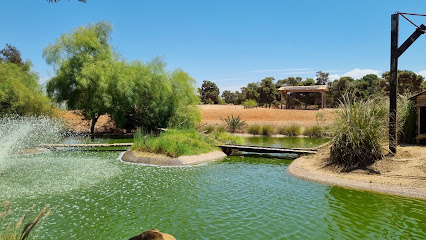
Chellah
Explore Chellah, a historical gem in Rabat, where ancient ruins meet tranquil gardens, offering a unique glimpse into Morocco's rich heritage.

Andalusian Gardens
Experience the tranquility of Andalusian Gardens in Rabat - a serene escape filled with vibrant flora and rich Moroccan culture.
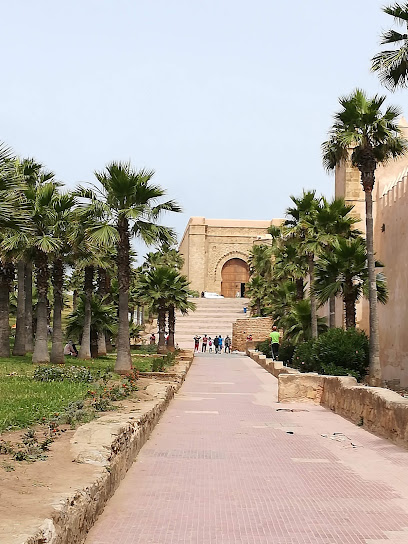
Royal Palace
Explore the Royal Palace of Rabat, a stunning architectural marvel and a vital piece of Morocco's royal history, surrounded by lush gardens and cultural landmarks.
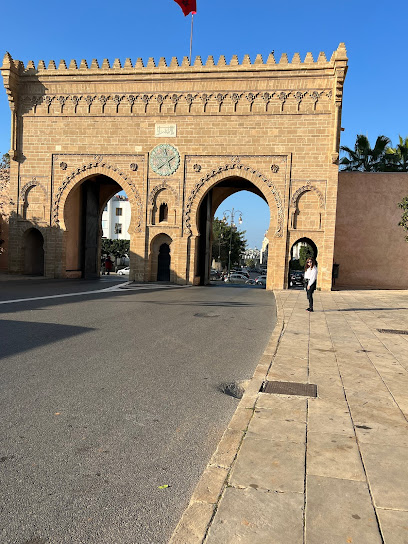
Museum of History and Civilizations
Discover Morocco's ancient past at the Museum of History and Civilizations, a treasure trove of archaeological wonders in the heart of Rabat.
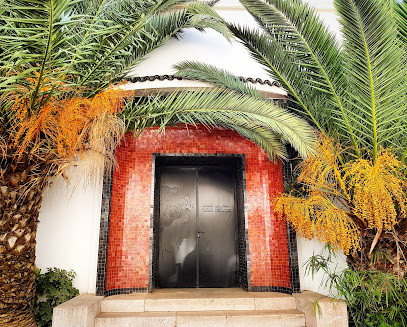
Lighthouse Rabat
Discover the iconic Lighthouse Rabat, a historical landmark offering stunning views of the Atlantic and a glimpse into Morocco's maritime heritage.
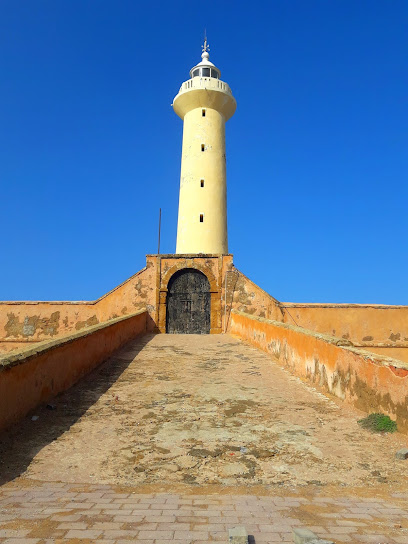
Bab Mellah
Experience the vibrant history and cultural richness of Bab Mellah, Rabat's historic Jewish quarter, filled with markets, architecture, and stories.
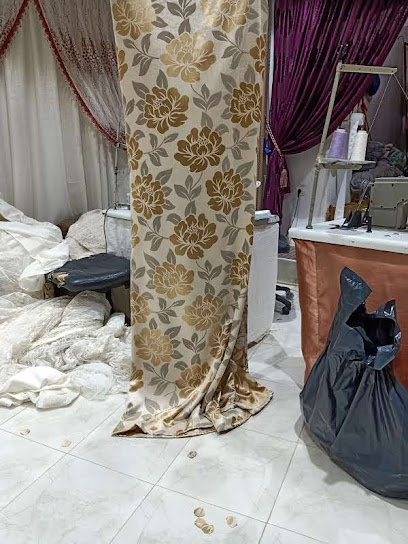
Bab Zaer
Experience the rich history and vibrant culture of Bab Zaer, Rabat's iconic landmark and gateway to the past.
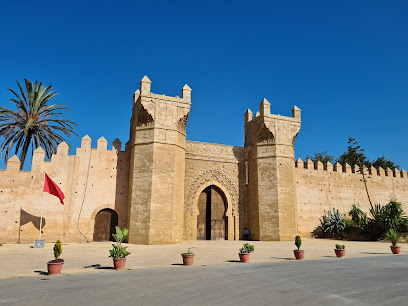
Viewpoint Oudayas
Discover stunning views of Rabat and the Atlantic Ocean at the breathtaking Viewpoint Oudayas, a must-visit attraction for every traveler.
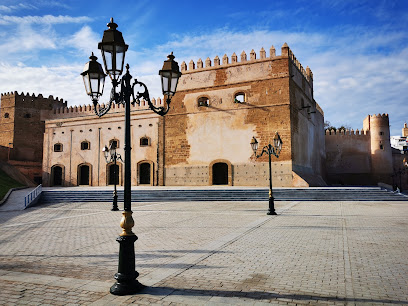
Street Art rabat centre ville
Discover the vibrant street art of Rabat, where creativity meets culture in the heart of Morocco's capital city.
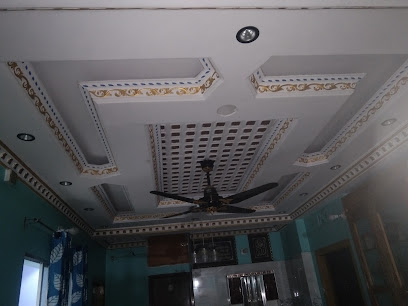
Essential places to dine
Pietripalace restaurant
Experience authentic Moroccan flavors at Pietripalace Restaurant in Rabat - where every meal tells a story.
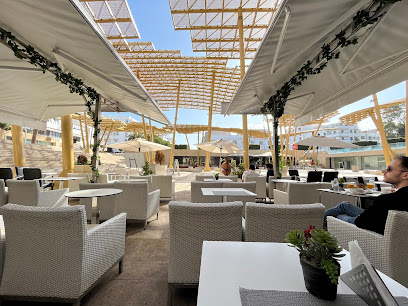
Dar El Medina
Experience authentic Moroccan flavors at Dar El Medina in Rabat—where tradition meets taste in every dish.
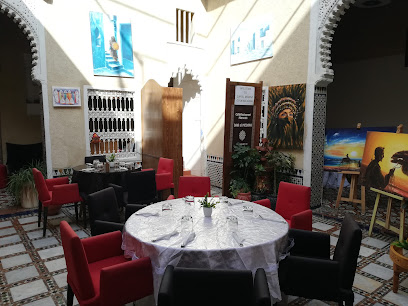
Il Giardino
Experience authentic Italian cuisine at Il Giardino in Rabat – where every dish tells a story.
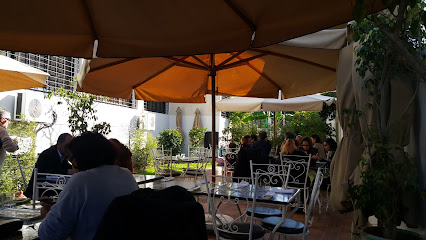
Le Petitbeur
Experience authentic Moroccan flavors at Le Petitbeur - where tradition meets taste in the heart of Rabat.
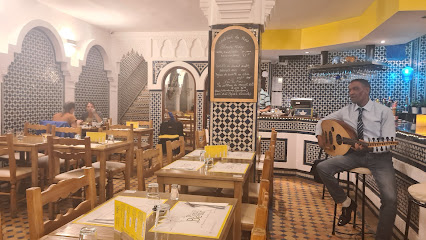
Le Bistrot du Pietri
Experience the vibrant culinary delights at Le Bistrot du Pietri in Rabat – where tradition meets contemporary flavors.
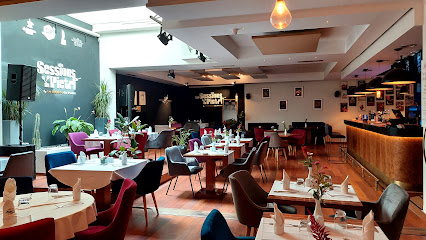
Pause Gourmet
Discover healthy Moroccan cuisine at Pause Gourmet in Rabat—where nutrition meets tradition through fresh ingredients and engaging cooking classes.
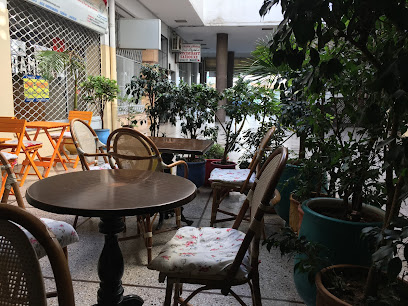
Le Goeland
Experience exquisite European cuisine at Le Goeland in Rabat – where culinary elegance meets Moroccan charm.
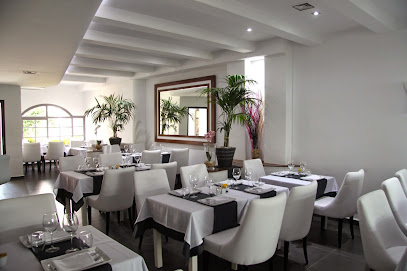
La Casa Di Carta
Experience the vibrant flavors of Morocco at La Casa Di Carta – where tradition meets modern culinary artistry in Rabat.
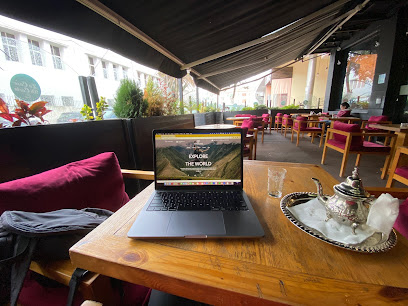
Le P'Tit Resto
Experience authentic French flavors in the heart of Rabat at Le P'Tit Resto - where every meal is a celebration of taste.
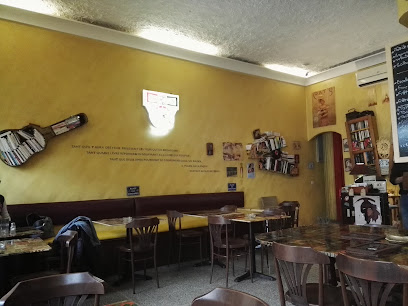
La Menora
Discover the authentic flavors of Morocco at La Menora in Rabat – a true gem in the heart of the city.
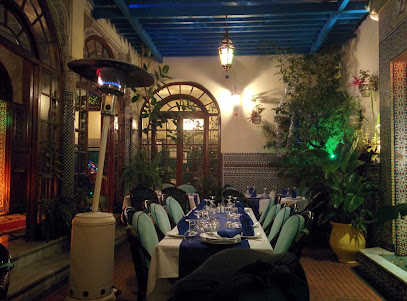
Markets, malls and hidden boutiques
Aure
Discover the art of Moroccan craftsmanship at Aure, where every piece of jewelry tells a story and captures the essence of Rabat's rich culture.
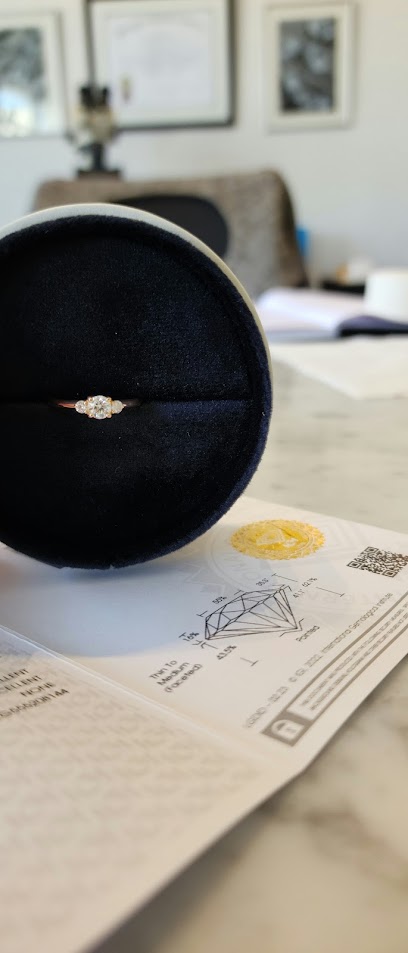
Alchimies artisanat haut de gamme
Explore Alchimies in Rabat for exquisite artisan gifts, showcasing the finest Moroccan craftsmanship in a beautifully curated boutique.
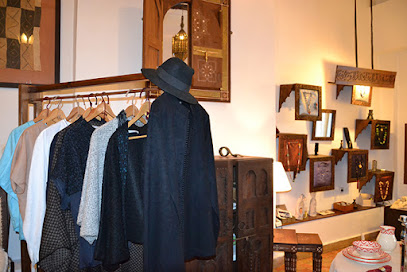
Lazaar shop
Explore the latest mobile technology and electronics at Lazaar Shop in Rabat, a must-visit destination for tech enthusiasts and travelers.
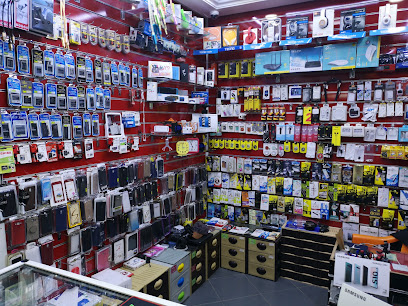
Feel it moments
Discover unique Moroccan handicrafts at Feel It Moments, a charming gift shop in Rabat Medina, perfect for authentic souvenirs and cultural treasures.
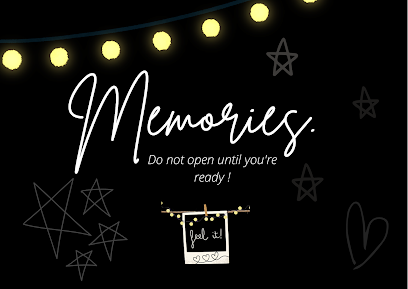
SWAGG
Explore SWAGG in Rabat for a unique fashion experience blending local culture with contemporary styles.
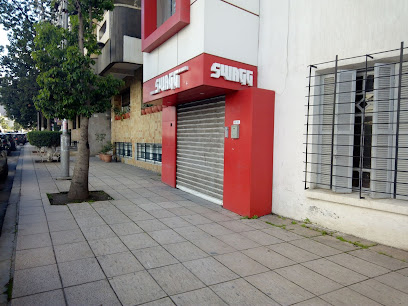
Mourad Boutique
Explore Mourad Boutique in Rabat for high-quality men's clothing that merges tradition with modern style, perfect for every occasion.
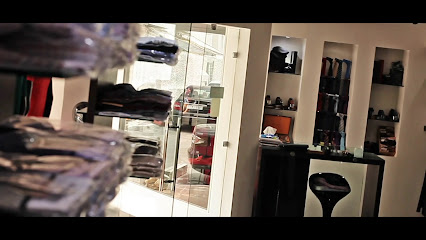
Comptoir la Capitale
Explore authentic Moroccan gifts at Comptoir la Capitale, a charming shop in Rabat offering unique souvenirs and artisanal treasures.

MANDIL STORE
Discover Mandil Store in Rabat for unique Moroccan gifts, vintage clothing, and artisanal crafts that capture the essence of Moroccan culture.
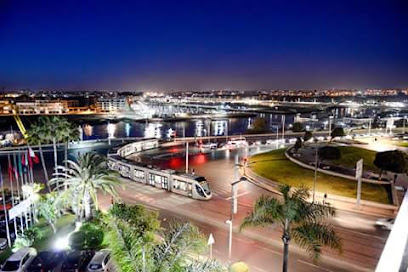
Agadir 2 (Boutique)
Explore Agadir 2 Boutique in Rabat for a unique blend of modern and traditional Moroccan fashion, perfect for any traveler seeking style.

Aux Merveilles articles de cadeaux
Explore the heart of Moroccan craftsmanship at Aux Merveilles Articles de Cadeaux, your go-to gift shop in Rabat for unique souvenirs and artisanal treasures.
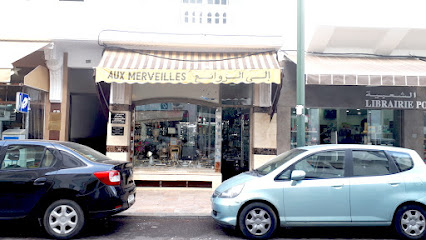
Essential bars & hidden hideouts
Montecristo Rabat
Experience the chic ambiance and delightful drinks at Montecristo Rabat, the perfect lounge for unwinding in Morocco's capital.
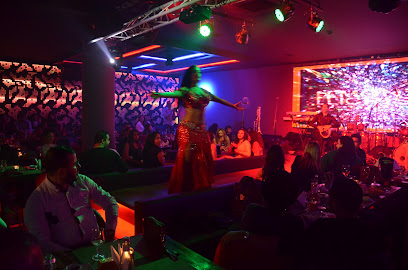
Ambre Bar
Discover the elegant ambiance and exquisite cocktails at Ambre Bar in Rabat, a perfect retreat for tourists seeking relaxation and local culture.
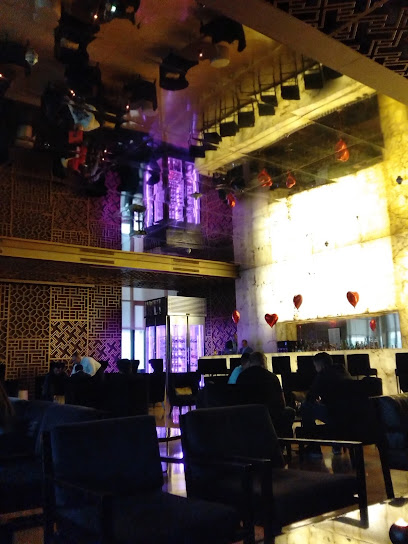
Yucatan
Discover Yucatan, Rabat's vibrant bar offering a unique blend of local flavors and international drinks, perfect for an unforgettable night out.
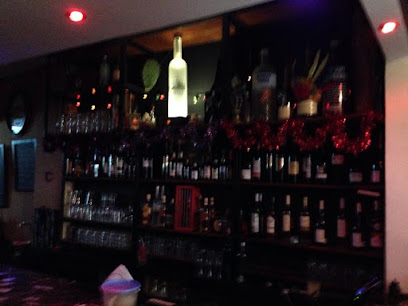
Baz'Art
Discover the essence of Moroccan nightlife at Baz'Art, a vibrant bar in Rabat offering an eclectic atmosphere and a wide range of drinks.
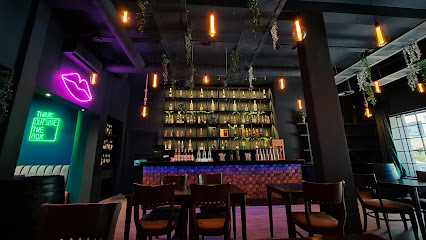
Jose Bar and Resturant
Unwind at Jose Bar and Restaurant in Rabat, where local flavors meet a vibrant atmosphere, perfect for tourists seeking relaxation and entertainment.
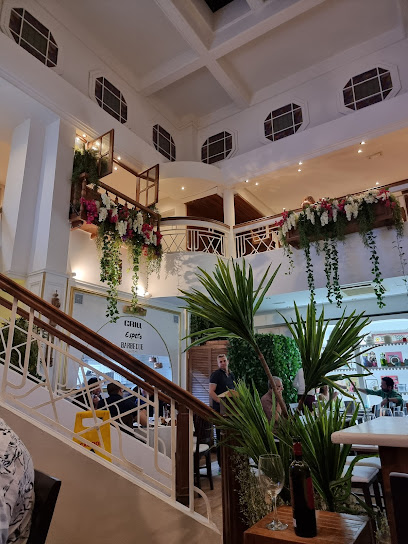
Dalia
Discover the exquisite flavors of Dalia, Rabat's premier grill restaurant, known for its refined cuisine and vibrant atmosphere.
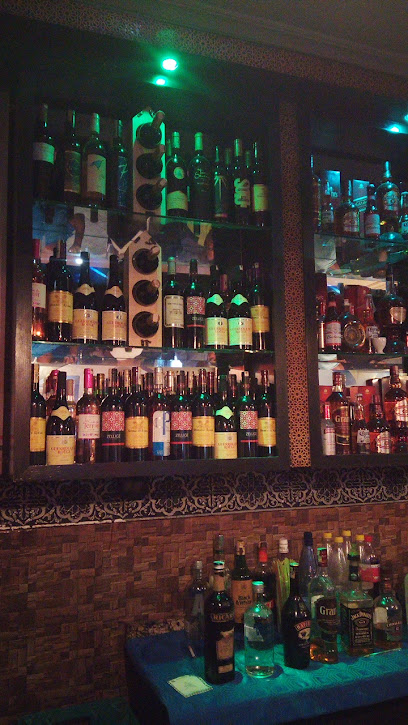
Bar Casablanca
Experience the heart of Moroccan culture at Bar Casablanca, a cozy bar in Rabat offering delightful drinks and local hospitality.
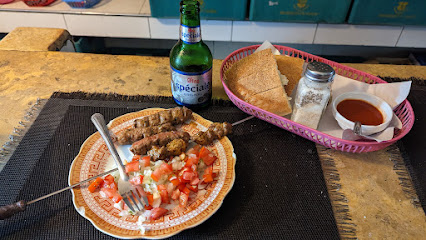
Le Rêve
Discover the lively atmosphere and diverse drink selection at Le Rêve, a must-visit bar in the heart of Rabat, Morocco.
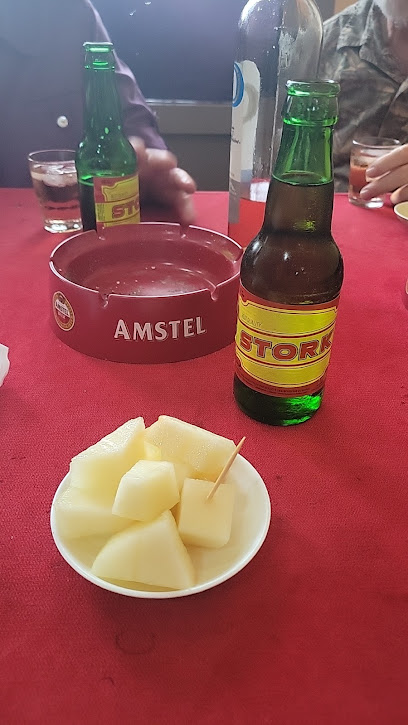
Le ZouLou
Experience the vibrant nightlife of Rabat at Le ZouLou, where unique cocktails and a lively atmosphere await every visitor.

Gusto del sol - iraki -
Experience the vibrant flavors of Iraqi cuisine at Gusto del Sol, a lively bar in Rabat perfect for food lovers and culture seekers.
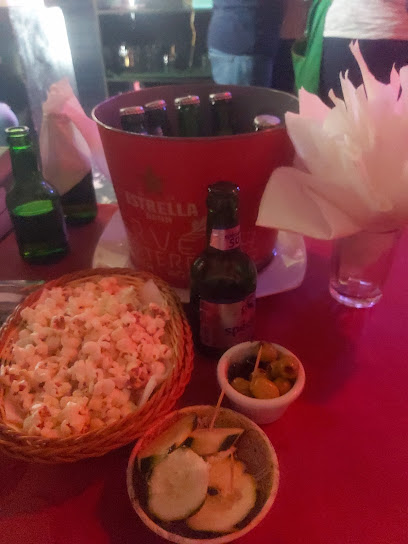
Local Phrases
-
- Helloسلام
[salaam] - Goodbyeوداعا
[wada'an] - Yesنعم
[naam] - Noلا
[laa] - Please/You're welcomeمن فضلك
[min fadlik] - Thank youشكرا
[shukran] - Excuse me/Sorryعذرا
[a'dhiran] - How are you?كيف حالك؟
[kayfa halak?] - Fine. And you?بخير، وأنت؟
[bikhayr, wa ant?] - Do you speak English?تتحدث الإنجليزية؟
[tatahadath al'injlizia?] - I don't understandلا أفهم
[la afham]
- Helloسلام
-
- I'd like to see the menu, pleaseأريد أن أرى القائمة، من فضلك
[urid an ara alqaimah, min fadlik] - I don't eat meatأنا لا آكل اللحم
[ana la aakol allahm] - Cheers!في صحتك!
[fi sahtak!] - I would like to pay, pleaseأريد أن أدفع، من فضلك
[urid an adfae, min fadlik]
- I'd like to see the menu, pleaseأريد أن أرى القائمة، من فضلك
-
- Help!النجدة!
[alnajdah!] - Go away!ارحل!
[irhal!] - Call the Police!اتصل بالشرطة!
[atasil bialshurta!] - Call a doctor!اتصل بالطبيب!
[atasil bialtabib!] - I'm lostلقد ضللت الطريق
[laqad dalalt altariq] - I'm illأنا مريض
[ana mareed]
- Help!النجدة!
-
- I'd like to buy...أود أن أشتري...
[awid an ashtari...] - I'm just lookingأنا فقط أتفرج
[ana faqat atfarij] - How much is it?كم هذا الثمن؟
[kam hadha althaman?] - That's too expensiveهذا غالي جدا
[hadha ghali jiddan] - Can you lower the price?هل يمكنك خفض السعر؟
[hal yumkinuk khafe alsiar?]
- I'd like to buy...أود أن أشتري...
-
- What time is it?كم الساعة؟
[kam alsaa'ah?] - It's one o'clockالساعة الواحدة
[alsaa'ah alwahidah] - Half past (10)النصف بعد (10)
[alnusf ba'd (10)] - Morningالصباح
[alsaabah] - Afternoonبعد الظهر
[ba'd althuhr] - Eveningالمساء
[almasa'] - Yesterdayأمس
[ams] - Todayاليوم
[alyawm] - Tomorrowغدا
[ghadan] - 1واحد
[wahid] - 2اثنان
[ithnan] - 3ثلاثة
[thalathah] - 4أربعة
[arba'ah] - 5خمسة
[khamsah] - 6ستة
[sittah] - 7سبعة
[sab'ah] - 8ثمانية
[thamaniah] - 9تسعة
[tis'ah] - 10عشرة
[asharah]
- What time is it?كم الساعة؟
-
- Where's a/the...?أين...؟
[ayn...?] - What's the address?ما هو العنوان؟
[ma hu al'unnwan?] - Can you show me (on the map)?هل يمكنك أن تريني (على الخريطة)؟
[hal yumkinuk an tureeni (ala alkharytah)?] - When's the next (bus)?متى يأتي الحافلة التالية؟
[mata ya'ti alhafilat altaliyah?] - A ticket (to ....)تذكرة (إلى ...)
[tadhkirah (ila ...)]
- Where's a/the...?أين...؟
History of Chellah
-
Chellah's history dates back to the Roman era when it was known as Sala Colonia, a flourishing settlement established in the 3rd century AD. The site became an important trading hub, with remnants of Roman structures, such as temples and baths, still visible today. The strategic location near the Bou Regreg river facilitated trade and communication, establishing Chellah as a vital link between the Mediterranean and the interior regions of Morocco.
-
Following the decline of Roman influence, Chellah transformed significantly with the arrival of Islam in the 7th century. The site became a necropolis and a center for learning, reflecting the Islamic architectural style of the period. The establishment of the Almohad dynasty in the 12th century further contributed to the development of Chellah, leading to the construction of new structures, including the mosque and the defensive walls that still stand today.
-
During the 13th and 14th centuries, Chellah became a significant site under the Marinid dynasty. The rulers invested in the expansion of the necropolis and the construction of intricate mausoleums and gardens, showcasing stunning examples of Marinid architecture. The site's blend of Islamic and local styles reflects the cultural exchange that characterized this period, making it a prominent symbol of Rabat’s rich heritage.
-
The 19th and early 20th centuries marked a period of decline for Chellah, as European colonial interests shifted focus towards Rabat's modern development. Despite this, the site's historical significance was recognized, leading to efforts to preserve its ruins. The colonial era saw the establishment of gardens within the ruins, which transformed Chellah into a tranquil retreat, attracting both locals and visitors seeking to explore its ancient past.
-
Today, Chellah is recognized as a UNESCO World Heritage site and stands as a testament to the rich tapestry of Rabat's history. It serves as a vital cultural landmark, attracting tourists and scholars alike who are drawn to its ancient ruins, lush gardens, and the annual festival celebrating the site’s historical significance. Chellah embodies the enduring legacy of Rabat as a crossroads of civilizations and a center of cultural exchange throughout history.
Chellah Essentials
-
Chellah is easily accessible from various neighborhoods in Rabat. You can take tram line 1 to the 'Gare de Rabat Ville' stop and then catch a local bus (line 4) directly to Chellah. Taxis are also a convenient option; just inform the driver of your destination. If you're coming from the Kasbah of the Udayas, it's a pleasant 20-minute walk along the Bou Regreg River.
-
Chellah is a compact site, making it easy to explore on foot. The ruins, gardens, and historical features are all within walking distance. If you wish to explore further, local taxis are available for hire. Bicycles can be rented from various shops in Rabat, offering a scenic way to explore the area surrounding Chellah.
-
Chellah is generally safe for tourists, but it is advisable to remain vigilant, especially in crowded areas. Avoid wandering alone at night, particularly in less populated spots. Petty crimes like pickpocketing can occur in tourist-heavy areas, so keep your belongings secure. While specific high-crime areas are not prevalent, it's best to remain aware of your surroundings.
-
In case of an emergency, dial 19 for the police or 15 for an ambulance in Morocco. Rabat has several hospitals and clinics, with the nearest major hospital located in the city center. It’s advisable to have travel insurance that covers medical emergencies. For minor health issues, there are pharmacies nearby where you can purchase over-the-counter medications.
-
Fashion: Do dress modestly, particularly when visiting historical sites. Avoid revealing clothing. Religion: Do respect local customs and traditions, especially in religious areas. Public Transport: Do be courteous and offer your seat to the elderly or pregnant women. Don't eat or drink on public transport. Greetings: Do greet locals with a handshake and a smile. Eating & Drinking: Do try local street food and accept food offerings graciously. Don’t refuse hospitality, as it is seen as impolite.
-
To experience Chellah like a local, take your time wandering through the gardens and ruins, absorbing the tranquil atmosphere. Visit early in the morning or late afternoon to avoid crowds and enjoy the serene environment. Engage with local vendors selling crafts and snacks; they often have fascinating stories about the area. Don’t miss the chance to observe the storks nesting on the ancient ruins, a sight unique to Chellah.
Nearby Cities to Chellah
-
Things To Do in Meknes
-
Things To Do in Fes
-
Things To Do in Asilah
-
Things To Do in Chefchaouen
-
Things To Do in Tangier
-
Things To Do in Tetouan
-
Things To Do in Europa Point
-
Things To Do in Gorham's Cave Complex
-
Things To Do in St. Michael's Cave
-
Things To Do in Alameda Botanic Gardens
-
Things To Do in Queensway Quay Marina
-
Things To Do in Main Street
-
Things To Do in Gibraltar
-
Things To Do in Catalan Bay
-
Things To Do in Casemates Square









